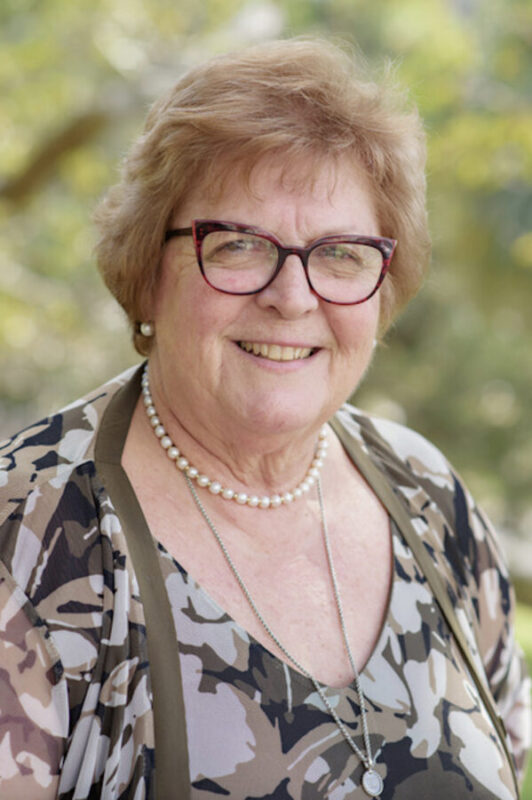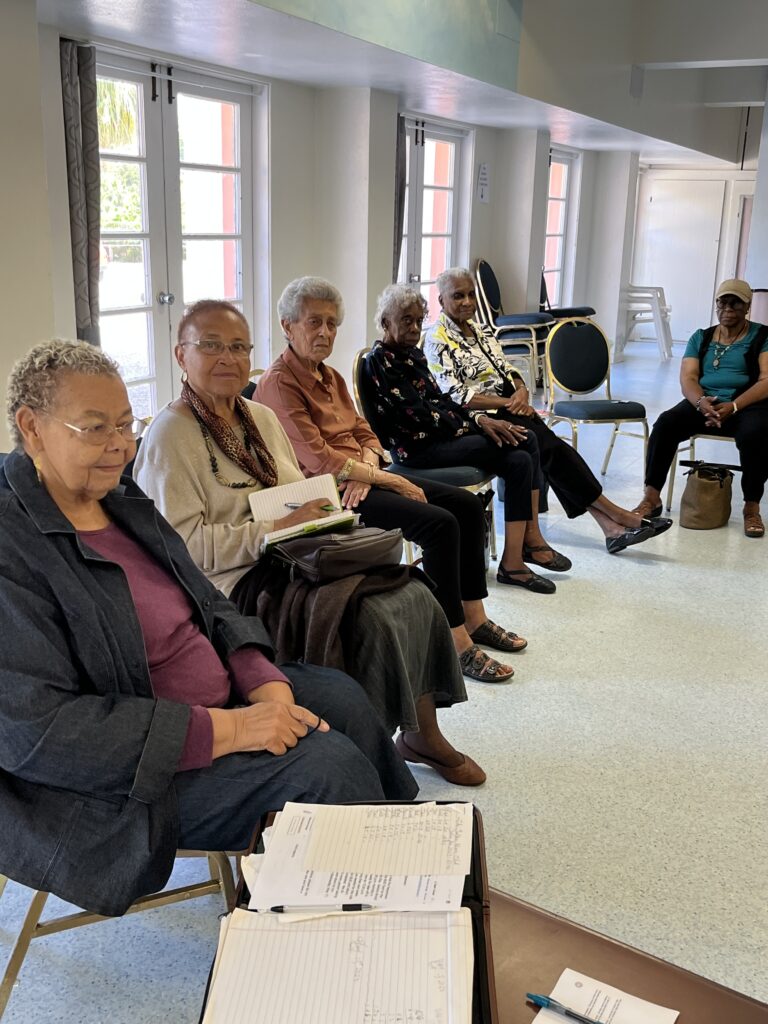What does it mean to be a good neighbour? Is it lending an egg or a cup of sugar when someone runs out mid-recipe? Mowing their lawn when they’re on vacation? Giving a friendly wave as you come and go? The concept of being “neighbourly” has naturally evolved over the years.
“The community dynamic has changed since I was a little girl here in Bermuda,” says Diane Gordon, Disaster Manager at Bermuda Red Cross. “It used to be that everybody knew everybody. These days, people are busy and don’t interact with their neighbours as much.”

This phenomenon can be very isolating, especially for seniors who may live alone, lack transportation options and have a small social circle. During a storm or other hazardous weather event, they may be stuck at home trying to cope independently.
“We need to look out for our vulnerable community members, like seniors,” Gordon says, noting that the pandemic provided a valuable learning experience in this area. “During COVID-19, it became a habit for people to check in on their older relatives and neighbours, making sure they were safe and had what they needed. It taught us to be good citizens and to actively care for our elders.”
In her work with seniors, Gordon has observed that they are a tight-knit community. “They have a strong communication network,” she explains. “If someone receives important information, they immediately contact all their senior friends and the message is shared very quickly.”
This solidarity among seniors is fostered at seniors’ groups such as the Golden Hour Club, hosted by the Bermuda Red Cross since 1972. “It’s a group of about 30 seniors who come together for connection, fellowship and entertainment,” explains Ann Spencer-Arscott, Executive Director of Bermuda Red Cross.
Members of the Golden Hour Club gather twice a month (with the exception of July and August) at Peace Lutheran Church. The meetings include music, refreshments, conversation and guest speakers. They also organize outings to the Aquarium and Windreach, along with special events such as picnics, holiday celebrations and an annual talent show. (For more information or to become a volunteer driver, call the Bermuda Red Cross office at 236-8253 or visit www.bermudaredcross.com/golden-hour.)
Bermuda has a number of thriving seniors’ groups, and they all have the positive effect of encouraging older adults to venture out and mingle with their peers. However, when bad weather strikes, seniors need support closer to home.
“If a hurricane watch is issued, people are advised to check in with the seniors in their area,” Spencer-Arscott says. “Some may have relatives looking after them, but others may be entirely on their own.” She suggests phoning or stopping by to confirm that the person has the necessary supplies, and offering to pick up essentials such as groceries, medications and pet food before the storm arrives.
Seniors may not be physically able to carry large objects, so they will appreciate neighbours who are willing to do a bit of heavy lifting. “During high winds, items that are left outside can become missiles flying into someone’s home, causing damage or injury,” Spencer-Arscott explains. “Assist your neighbours, especially elderly ones, with putting away garden furniture, lawn decorations, outdoor toys, bicycles, potted plants and trash cans.”
If a power outage occurs, it may cut off the lines of communication for a senior with limited technology. You can offer the use of your cell phone or laptop so they can contact concerned relatives and friends. Many seniors listen to the Emergency Broadcast Station at 100.1 FM, so it is a nice gesture to check that they have a fully functioning battery-operated radio.
Spencer-Arscott points out that being prepared and assisting others is crucial throughout the year, not just during hurricane season. “With climate change, it’s just not hurricanes that are affecting us,” she says. “Some winter storms have higher wind speeds than a hurricane, and vulnerable community members need support during all types of emergencies.
While it might sound a bit old-fashioned, Spencer-Arscott says it’s worth making the effort to connect with the people who live near you. “I would encourage people to get to know their neighbours better, especially seniors who might need extra help,” she says. “If they don’t have family in the region, they may not have anyone to bring them home-baked muffins or drive them to their appointments.”
As a born-and-raised Bermudian and a Red Cross employee for 31 years, Spencer-Arscott has personally witnessed how residents step up and come together in challenging times. “I’ve seen people run an extension cord from their generator to the house next door to keep their neighbour’s fridge running,” she says. “I’ve watched contractors with power tools walking from yard to yard after a storm, cutting fallen trees and clearing debris. Our communities are full of people who eagerly pitch in and help out.”
Ultimately, that’s what being neighbourly is all about — supporting those who need it when it is needed. As Spencer-Arscott puts it: “we prepare for the worst, but storms tend to bring out the best in people.”

